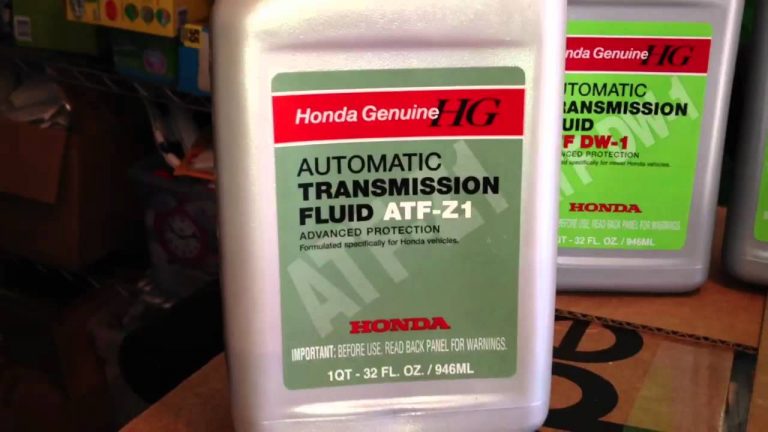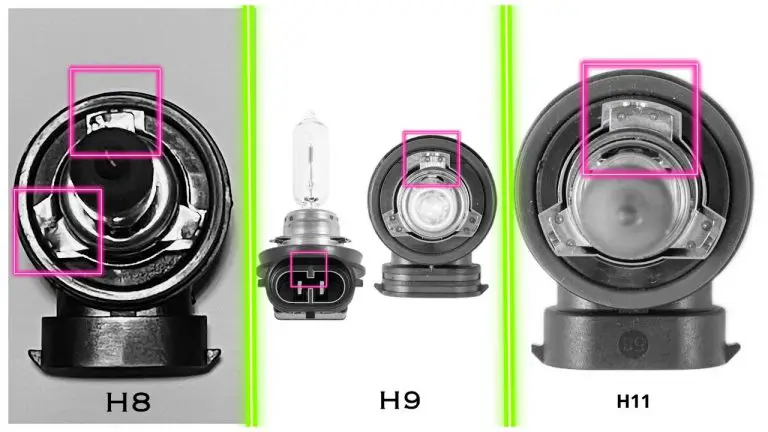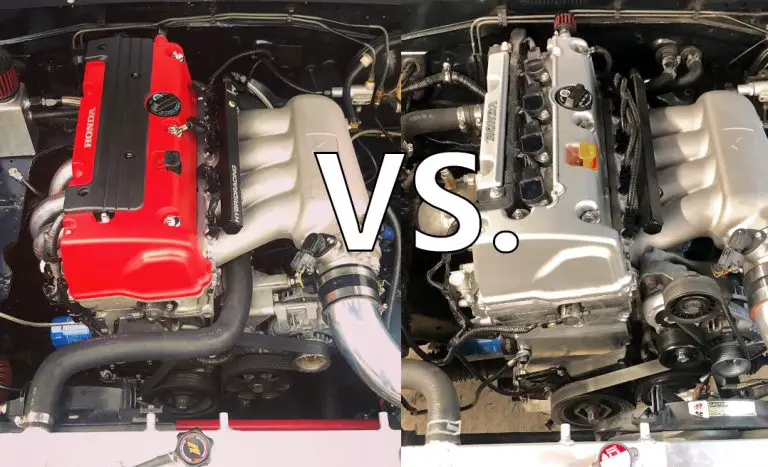There are many different types of cars on the market today and each one has its own set of features. Two popular choices when it comes to car models are Honda and Toyota. Both manufacturers offer a variety of vehicles, including sedans, hatchbacks, and SUVs.
When it comes to transmissions, both Honda and Toyota offer CVT (Continuously Variable Transmission). So, which is better? Honda CVT or Toyota CVT? Read the whole article to learn which is better for you.
Toyota Cvt Vs Nissan Cvt
When shopping for a new car, you may come across the option of a CVT or Continuously Variable Transmission. But what exactly is a CVT, and how does it differ from other types of transmissions? In this article, we’ll take a look at Toyota CVTs vs Nissan CVTs to see how they compare.
Both Toyota and Nissan offer vehicles with CVT transmissions. A CVT transmission is different from other types of transmissions in that it has no set number of gears. Instead, it uses two pulleys connected by a belt to provide an infinite number of gear ratios.
This allows the engine to always operate at its optimal RPM, providing better fuel economy and performance. Nissan was the first automaker to offer a CVT transmission in North America back in 2002. Since then, they’ve continued to refine and improve their CVTs, offering one of the most advanced and reliable options on the market today.
Toyota followed suit soon after, debuting its own CVTs in 2004. While both manufacturers have continued to improve upon their designs over the years, there are still some key differences between them. One major difference is that Nissan’s CVTs use steel belts while Toyota uses rubber belts.
Steel belts are more durable and can handle higher temperatures without stretching or breaking as rubber belts can. This makes them ideal for high-performance applications where the engine produces more power and heat. However, steel belts also tend to be noisier than rubber belts so they may not be ideal if you’re looking for a quiet ride.
Another difference is that Nissan’sCVTs use smaller pulleys than Toyota’s which helps reduce noise even further but also limits the amount of torque that can be handled by the transmission.
Honda Cvt Reliability
Honda has long been known for the reliability of its vehicles. The Honda CVT, or Continuously Variable Transmission, is one of the most reliable transmissions on the market. In fact, Honda is so confident in the CVT that it offers a 10-year/100,000-mile warranty on all new vehicles equipped with this transmission.
So, what makes CVT so reliable? One of the main reasons is that it doesn’t have any gears to shift. Instead, it uses two pulleys connected by a belt to provide an infinite number of gear ratios.
This means that there are fewer moving parts inside the transmission which leads to reduced wear and tear. Another reason for the reliability of the CVT is that it’s a very efficient transmission. Unlike traditional automatic transmissions which can lose up to 15% of engine power through heat and friction, the CVT only loses about 5%.
This efficiency translates into better fuel economy and less stress on the engine over time. If you’re looking for a reliable car with excellent fuel economy, then consider a Honda with a CVT transmission. You’ll enjoy years of trouble-free driving thanks to this impressive piece of engineering!
Honda Cvt Life Expectancy
Honda is known for manufacturing reliable and long-lasting vehicles. Many Honda models have a reputation for providing years of trouble-free driving. When it comes to the Honda CVT or continuously variable transmission, this reliability may be questionable.
CVT is a type of automatic transmission that has been gaining popularity in recent years. However, many drivers are still hesitant to trust this newer technology. One common concern is the life expectancy of a Honda CVT.
Unfortunately, there is no definitive answer when it comes to the lifespan of a Honda CVT. The transmissions are complex and each one may be slightly different. Additionally, the way a vehicle is driven can impact the longevity of its CVT.
Generally speaking, however, most experts believe that a Honda CVT should last around 100,000 miles. This may vary depending on the model of the vehicle and how it is used and maintained. With proper care and maintenance, some drivers may get even more mileage out of their Honda CVTs.
Honda Cvt Slipping
If your Honda is slipping when you accelerate, it may have a problem with its CVT or continuously variable transmission. This can be a serious issue, as it can lead to decreased fuel efficiency and even engine damage. There are several things that can cause CVT problems, so it’s important to have your car checked out by a mechanic if you think there may be an issue.
One possible cause of CVT problems is low fluid levels. The transmission fluid helps to keep the components of the CVT cool and lubricated, so if it’s low, it can lead to overheating and premature wear. You should check your transmission fluid level regularly and top it off if necessary.
Another potential cause of slipping is a faulty pressure sensor. The pressure sensor tells the computer how much power to send to the wheels, and if it’s not working properly, the vehicle may slip when accelerating. This is usually an easy fix for a mechanic.
If your Honda is slipping when you accelerate, don’t ignore it! These issues can lead to serious problems down the road. Take it to a mechanic and have them diagnose the problem so you can get back on the road safely.
Who Makes Honda Cvt Transmission
Honda’s CVT transmission is one of the most popular and reliable on the market. Who makes this amazing piece of machinery? Honda does!
That’s right, this Japanese company has been perfecting the CVT transmission for years and it shows in their vehicles. From the Honda Accord to the Honda Fit, these cars are known for their great fuel economy and smooth ride – thanks in part to the CVT transmission.
Best Cvt Transmission
A CVT or continuously variable transmission is an automatic transmission that can change seamlessly through a continuous range of effective gear ratios. This results in smoother, more efficient power delivery from the engine to the wheels.
The main advantage of a CVT over a traditional automatic transmission is improved fuel efficiency.
By being able to always maintain the engine operating at its most efficient RPM for any given road speed, a CVT-equipped vehicle will typically return better mileage than one with a conventional automatic transmission.
Another selling point for CVTs is their potential to provide a smoother driving experience. Because there are no fixed gears like there are in traditional automatics, there’s no “shifting” feel as the car accelerates – just smooth, linear power delivery.
This can be beneficial both in terms of passengers’ comfort and also tire wear, as abrupt gear changes can cause premature tire tread wear.
If you’re considering purchasing a car with a CVT transmission, it’s important to do your research and make sure that the model you’re interested in has been well-reviewed. While they offer many advantages over traditional automatics, CVTs have been known to cause reliability issues in some cars – so it’s best to err on the side of caution when making your decision.
Honda Cvt Transmission Recall
Honda has issued a recall for 1.4 million vehicles with CVT transmissions. The recall affects the following models:
2007-2011 Honda Civic
2012-2015 Honda Civic
2010-2014 Honda Insight
2009-2014 Honda Fit
The recall is due to a problem with the CVT transmission that can cause it to fail. This can cause the vehicle to stall or lose power, which could lead to an accident. If you have one of these vehicles, you should take it to a dealership for repair.

Credit: www.youtube.com
Which Cvt Transmission is Most Reliable?
There are a few different CVT transmissions on the market, and it can be tough to decide which one is the most reliable. Here is a rundown of a few different CVT transmissions, and how they compare in terms of reliability. The first CVT transmission is the Jatco CVT7.
This transmission is used in a variety of different vehicles, including the Nissan Altima and Rogue. The Jatco CVT7 has been around for a while and has proven to be a very reliable option. There have been some reports of issues with this transmission, but they are few and far between.
Overall, the Jatco CVT7 is a very reliable option. The second CVT transmission is the Honda RE5RO1A. This transmission is used in a variety of Honda models, including the Accord and Civic.
The RE5RO1A has been around for a while as well and has also proven to be a very reliable option. There have been fewer reports of issues with this transmission than with the Jatco CVT7, making it even more reliable. The third CVT transmission is the Toyota K410E-Cvt.
This transmission is used in Toyota models such as the Camry and RAV4. The K410E-Cvt has also proven to be a very reliable option, with few reports of issues or problems. Overall, all three of these CVT transmissions are quite reliable.
However, if we had to choose one as being the most reliable, it would probably be the Honda RE5RO1A based on its overall track record and lack of reported problems or issues.
Is Toyota Cvt Better?
There is no simple answer to the question of whether Toyota CVT is better. However, there are some factors that can be considered in order to make a more informed decision. First, it is important to understand what a CVT is and how it works.
A CVT, or continuously variable transmission, is an automatic transmission that uses belts or pulleys to change gears without any interruption in power delivery. This makes for a smoother and more efficient driving experience, as well as increased fuel economy. In general, Toyotas tend to be very reliable cars.
This means that you can expect your Toyota CVT to last for many years with proper maintenance. Additionally, Toyotas are known for their excellent resale value – so if you do decide to sell your car down the line, you can expect to get a good return on your investment. One potential downside of owning a Toyota with a CVT is that repairs can be expensive.
If something does go wrong with the transmission, it will likely need to be replaced entirely – which can cost several thousand dollars. However, this is still cheaper than having to replace an entire engine – so it may be worth the peace of mind of knowing that your car should continue running smoothly for many years to come. Ultimately, the decision of whether or not Toyota CVT is right for you depends on your individual needs and preferences.
If you are looking for a reliable and efficient car that will hold its value over time, then a Toyota with a CVT may be the perfect choice for you!
Is the Honda Cvt Transmission Reliable?
Honda is one of the most popular car brands on the market. Many drivers choose Honda for its reliability, and one big factor in that reputation is the CVT transmission. But what exactly is a CVT transmission?
And is it really as reliable as people say? A CVT transmission is a type of automatic transmission that uses a pulley and belt system to change gears. This system can provide an infinite number of gear ratios, which means the engine can always operate at its ideal RPM level.
That’s why many drivers love CVT transmissions – they provide smooth, efficient power delivery with no “stepping” between gears like you get with traditional automatic transmissions. So, are Honda CVT transmissions reliable? Overall, yes.
They are designed and built to be very durable, and they don’t have any major design flaws that would lead to widespread issues. However, like any complex piece of machinery, there’s always a chance something could go wrong. If you do have problems with your Honda CVT transmission, it’s likely covered by the factory warranty.
If you’re thinking about buying a Honda (or any car with CVT transmission), you can rest assured knowing that you’re getting a reliable vehicle. Just remember to keep up with regular maintenance, and if anything does go wrong, know that you’re covered by a strong warranty policy.
Who Makes Honda’S CVT Transmission?
Honda’s CVT transmission is made by Jatco, a Japanese company that is the world’s largest manufacturer of CVTs. Honda has been using CVTs from Jatco in its vehicles since 2002, and it currently uses them in a wide range of models including the Civic, Accord, CR-V, and Pilot. The CVT transmission is widely regarded as being very reliable and efficient, and it helps to make Honda’s cars some of the most fuel-efficient on the market.
Conclusion
If you’re in the market for a new car, you may be wondering whether a Honda CVT or Toyota CVT is the better option. Both are great choices, but there are some key differences to consider. Honda CVTs are known for their smoothness and reliability, while Toyota CVTs are known for their fuel efficiency.
If you’re looking for a car that’s fun to drive, the Honda CVT is probably the better choice. However, if you’re looking to save money on gas, the Toyota CVT is probably your best bet.
Ultimately, it comes down to personal preference. Consider what’s important to you and make your decision based on that.




